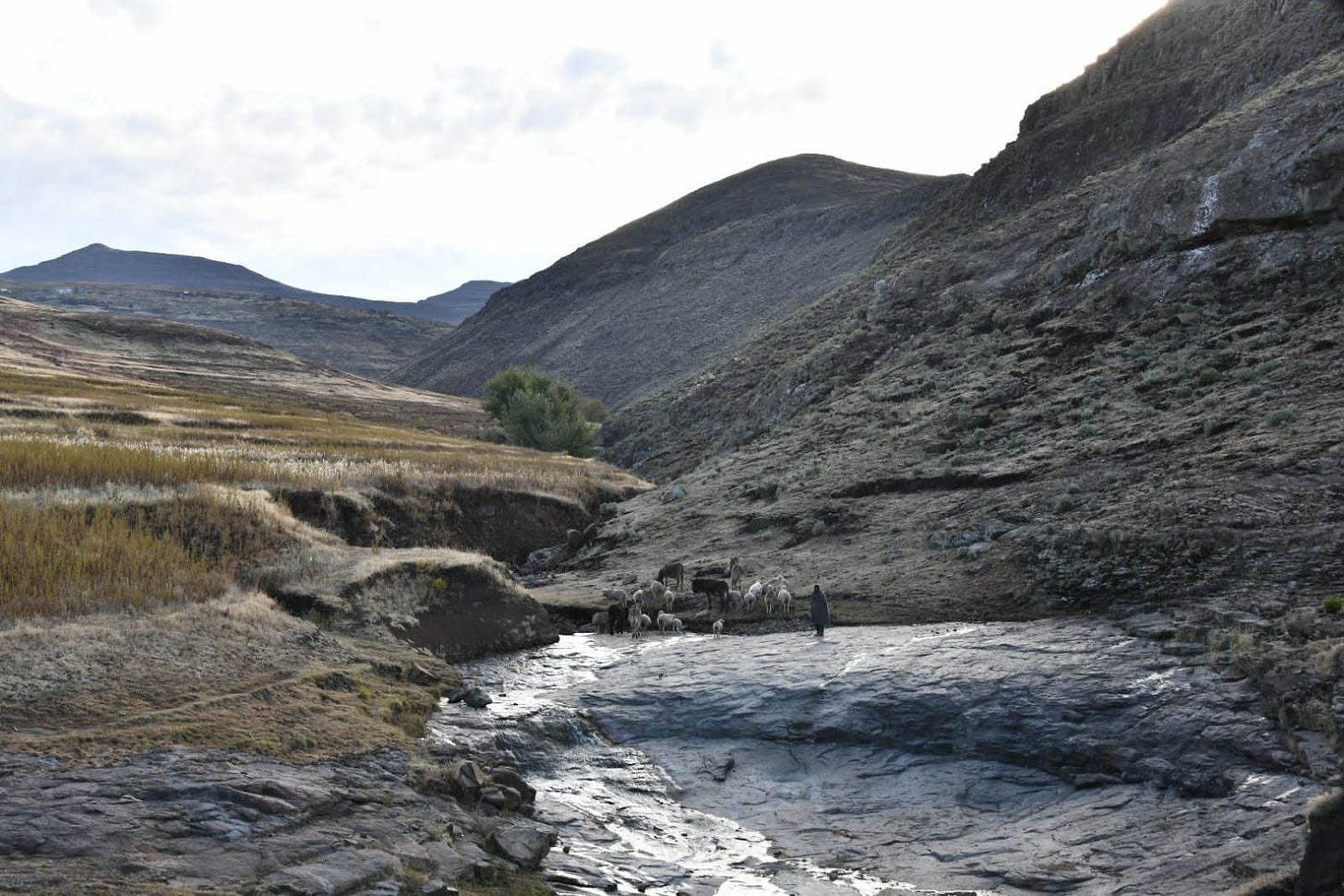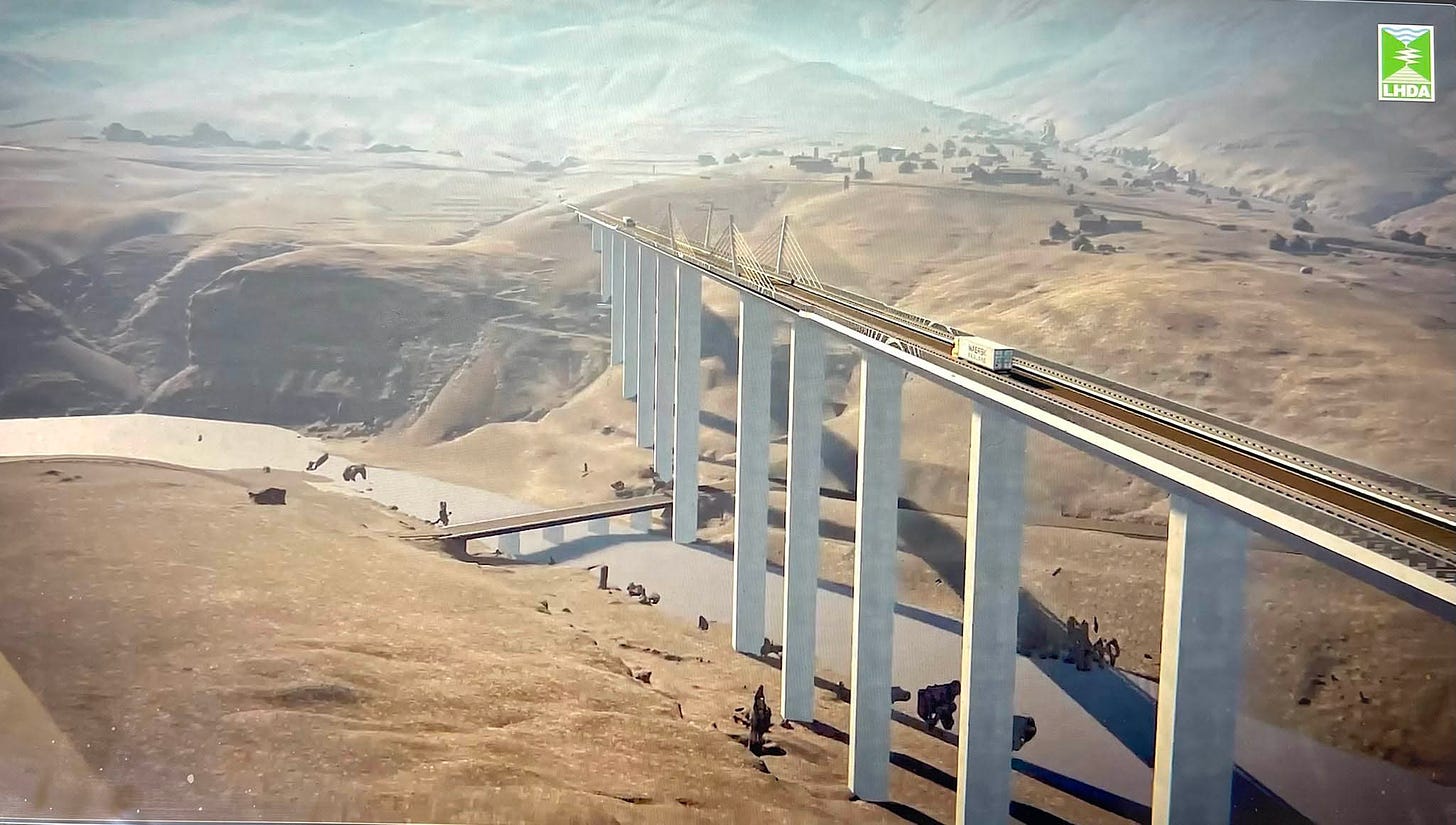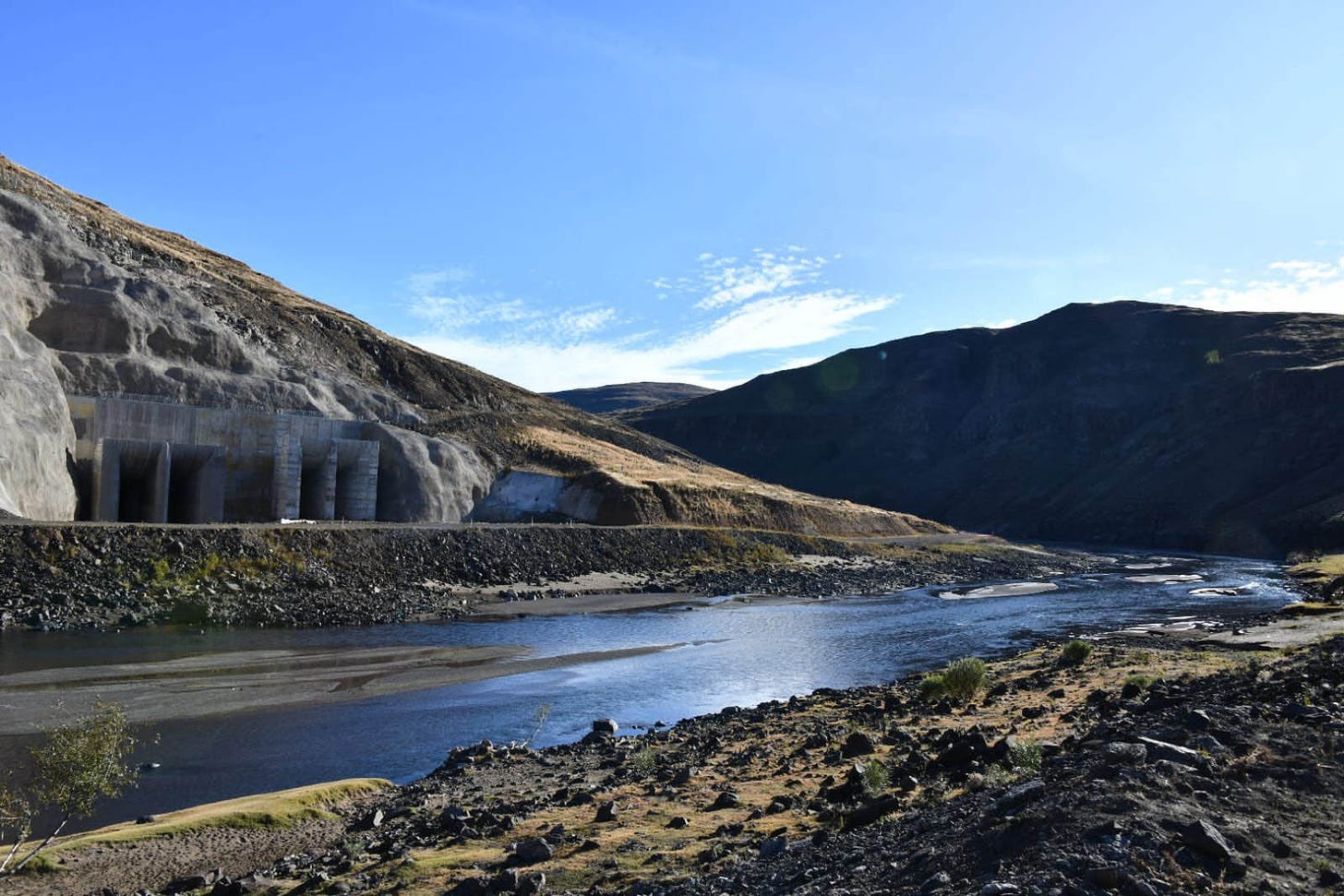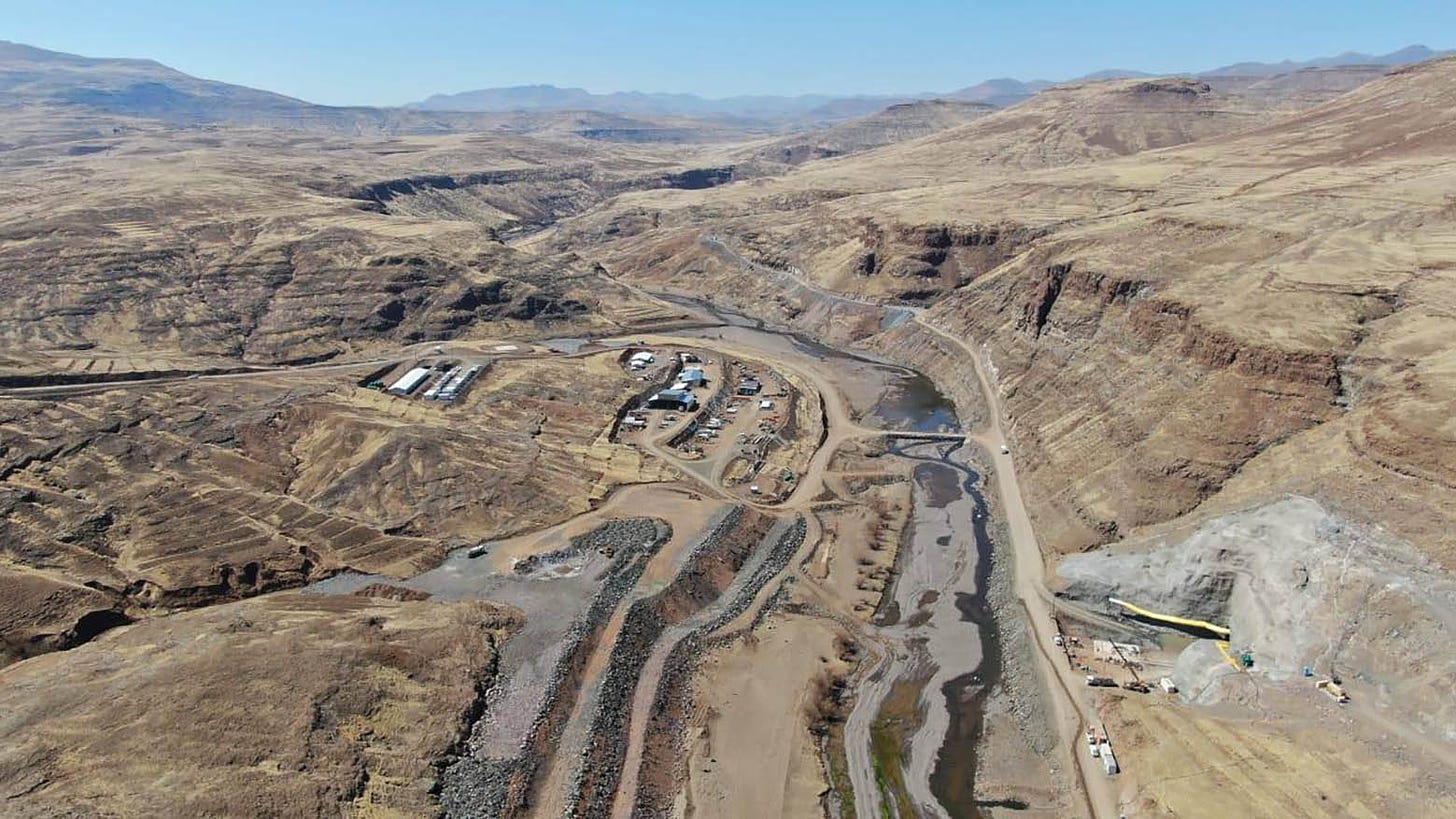Village of the dammed: Basotho folk left high and dry
The new Polihali dam means that even more water will flow across the border to South Africa – but few benefits flow to the people being forced from their land in the construction process.
In Polihali, 291km outside Lesotho’s capital Maseru, a dam that will transfer large volumes of water to South Africa is being built. But swathes of Basotho say they are paying a heavy price for this South African privilege.
When South Africa’s President Cyril Ramaphosa and Lesotho’s king, Letsie III, went to Polihali to launch the dam’s construction in late May, locals brought protest placards to the occasion, but the army confiscated them, they say.
The Polihali dam is being built by a consortium of two Chinese companies, one South African company and one company from Lesotho. The project, worth 7.8-billion maloti ($420-million), is funded by the South African government. It will generate electricity for Lesotho and transfer water to Gauteng, South Africa’s most populous province, which already imports much of its water from Lesotho.
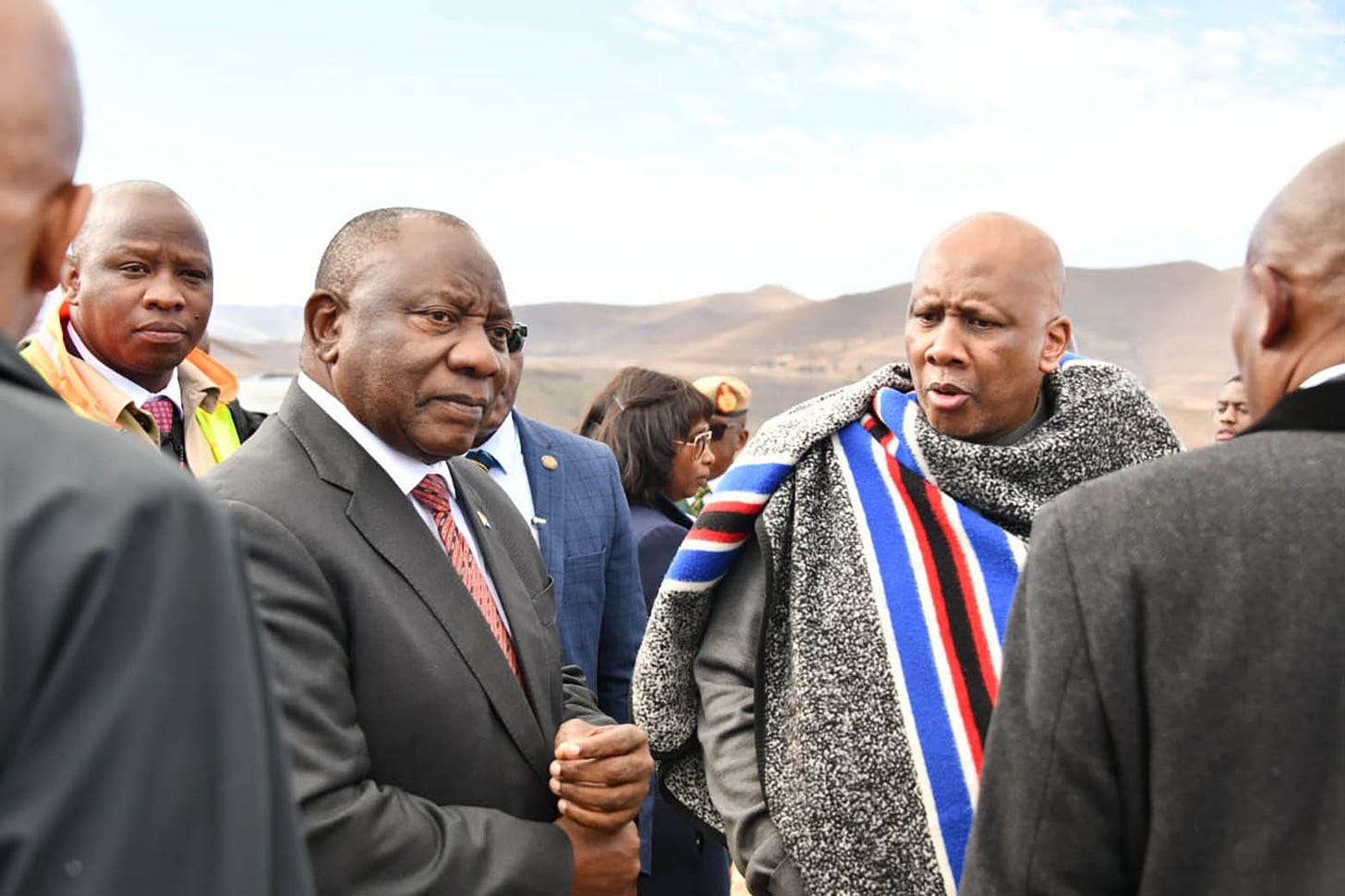
The new dam falls under the Lesotho Highlands Development Authority – the LHDA – which oversaw the construction of the Katse and Mohale dams, which also serve South Africa’s water needs. The Lesotho government earned 1.4-billion maloti (about $75-million) in royalties from South Africa for these water transfers last year alone, and stands to earn more once Polihali is completed in 2027.
But, as construction of the latest dam kicks off, many grievances from local communities remain unresolved.
The biggest fight promises to be over compensation for land. The Continent has learnt that LHDA workers gathered locals and solicited their views on fair compensation, only to ignore their recommendations.
In the talks with LHDA, community members called for compensation that would span their lifetime, or be fixed at between 70 and 99 years, according to Lebohang Lengoasa, a representative of Polihali residents. Lengoasa said the demand was based on the fact that the dam will deprive Basotho highlanders of access to their lands for traditional economic activities, including farming and rearing animals, for the rest of their lives.
To their chagrin, LHDA offered compensation covering barely half that. “We have reached a ceiling of 50 years. This is what was applied in phase I of the project,” LHDA’s Polihali operations manager Gerard Mokone told The Continent. Phase I was completed 20 years ago. He said that while it is true that the affected communities expressed different opinions concerning the compensation policy, the project was not obliged to take them on.
Lengoasa said that LHDA’s unilateral decision “has seriously irked us”, and according to Mothusi Seqhee, the national coordinator of the non-profit organisation Sold – Survivors of Lesotho Dams – the matter may go to court as his organisation is teaming up with others to sue LHDA.
Land compensation is not the only aspect of the dam’s construction that has aggrieved local Basotho communities.
Bataung Makhakhe, a parliamentarian representing the area, said that people’s animals were already being impounded if they crossed into the construction area, and their owners were being heavily fined. Lengoasa also said gender and antilocal discrimination was at play in the recruitment and compensation for people working on the dam, with very few local women being hired and local workers being paid less than foreign colleagues.
Policy, Environmental Justice and Water Resources Advocacy’s Lenka Thamae said his organisation is pushing LHDA to offer local communities 20% of the money paid by South Africa for water.




